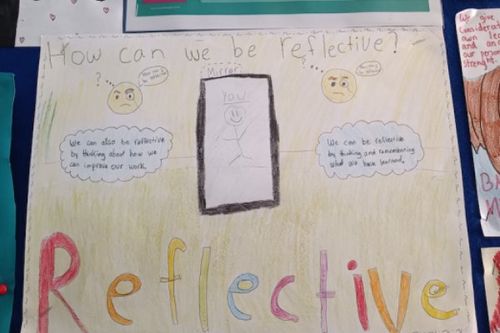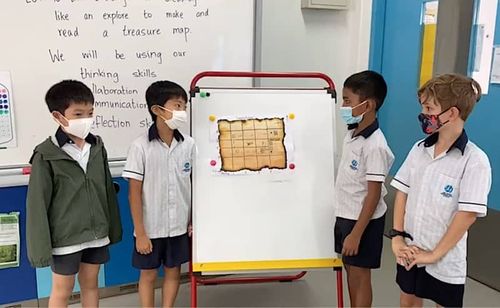We define reflection as careful thought and consideration. And while you may not realise it, you probably spend at least a portion of your day in reflection. Any time you wonder how to improve your relationship with a coworker or strategise how to better organise your home, you are reflecting. In most instances, reflection leads to an improved outcome. For instance, if you’re thinking of ways to become more organised, you may decide to put up shelving, buy containers, or even take a class in home organisation — all of which will eventually help you achieve your goal.
The International Baccalaureate, or IBO, includes the attribute of reflection as an important part of academic instruction for children aged 3 to 19. At One World International School, we embrace the IB PYP and International Baccalaureate Diploma Programme in an effort to produce students who are curious, intelligent, caring and ready to take on the world.
What Can Students Accomplish Through Reflection?

In Primary and Secondary classrooms, reflection is vital. It helps students brainstorm ideas on how they could have done better on a past assignment and how they might improve their work in the future.
Reflection also plays a significant role in self-led learning. By considering strengths and weaknesses and strategising ways to capitalise or improve upon them, students learn to take responsibility for their own efforts. This approach is superior to rote memorisation because it produces several ideal outcomes, including:
- The opportunity for a student to assess their abilities and to identify their skills
- The freedom for students to set defined goals
- A chance for students to measure their progress against the progress of peers
- The opportunity for students to accept accountability
- A chance to become inspired
As students reflect on their performance and on the performance of others, or when they take time to share and hash-out ideas and solutions, they’re mastering the skills needed to succeed later in life.
How Do OWIS Students Practise Reflection?
At One World International School, the emphasis is always on the experience of learning rather than on the individual material that’s being taught. As a result, reflection plays a significant role in the approach. OWIS students learn to practise reflection by progressing through different levels:
- Recalling – As a student remembers the work they’ve done and the material they’ve learned, they ask themselves what they’ve accomplished with the project.
- Understanding – The student weighs the importance of their accomplishment.
- Applying – The student considers where they can apply the information they’ve learned to real-life scenarios.
- Analysing – The student searches for patterns in their own performance.
- Evaluating – The student thinks about what they could have done differently to affect a different outcome.
- Extending – The student looks ahead to ways they might use the information they’ve learned in the future.
How Does OWIS Nurture the Attribute of Reflection?

Teachers at One World International School are highly trained in the attributes of the IB Learner Profile, including reflection. This is one way our school excels at helping students learn to master the feature. Aside from understanding the individual attributes of the programme, teachers also model it inside the classroom.
But there are other ways in which OWIS educators and administration nurture the practice of reflection in our students. A big one involves allowing sufficient time for students to think about what occurred after the conclusion of an assignment, assembly, or other project. This small pause before moving on is highly effective in helping students better understand the material. Additionally, school exhibitions allow students to contrast and compare their work with others. They also foster confidence as students proudly display their hard work to families and friends.
A third way in which OWIS nurtures reflection involves our celebrations of achievement. Our educators are always prompt to recognise and reward exceptional work and attitude. And when a student admits they don’t know, teachers are always swift to reply with ‘You don’t know, yet.’ This leaves the door open to exploration and cements the idea in the student’s mind that they can learn whatever they desire to learn.
Parents interested in exploring the education approach at OWIS Nanyang and OWIS Suntec for their children can join our school tours or schedule a personalised consultation with our Admissions Counsellor.
This blog was originally written in collaboration with Jasween Gill, former Admissions and Communications Director, OWIS Nanyang and Suntec.














